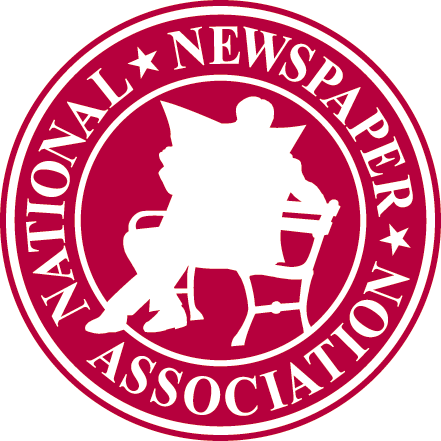Back Home by Chris Hardie
» Download this column as a Word document
» Download the photos that accompany this story
» Chris Hardie’s headshot
The bleak days of January may not seem like a time for celebration, but my ancestors knew how to break the winter blues. About Jan. 25 was the time for Scottish settlers in the Galesville area of Trempealeau County to celebrate the life and poetry of the Scottish bard Robert Burns. It was known as Burns Night — an evening of music with bagpipes, singing, dancing, poetry recitation, eating Scottish food, and drinking perhaps a wee dram or more of whisky.
The first Burns Night was held in 1801 in Scotland — the fifth anniversary of his death. They have been held ever since, usually hosted by Burns clubs or other Scottish society clubs.

The tradition was carried from the homeland in 1854 by my great-great-great grandparents James and Margaret Hardie. They came to the area now known as Hardie’s Creek after spending two years mining in Maryland. They were from the Glasgow region of Scotland; a Wisconsin post office by the same name was established in southern Trempealeau County east of Galesville along the Black River.
Grandpa James was described in the book “A History of Trempealeau County” by Eben Douglas Pierce “as an early settler and a sturdy Scotchman.”
Don’t misunderstand; those devout Presbyterians didn’t party every weekend. In fact, Saturday nights were for Bible reading and prayers, as described by Burns in his poem in “The Cotter’s Saturday Night.” Saturday night was followed by Sabbath-day services.
But there were some partiers among the clan. Distant-uncle Joshua Bibby, a brother to Grandma Margaret, “was a lover of music and poetry, and a great reader. He used to read and recite Burns, was a member of the Burns Club, and loved a game of “curling” on the ice — an old Scotch game. He was a genial, winning man who radiated good cheer wherever he went.”
There were enough of those fun-loving Scots in the area that they established the Galesville Burns Club, an organization devoted to the poet and the sport of curling.
An entry in the Pierce book, attributed to Jemima Bibby, describes the bunch.
“Dances amused them often, many being musicians of no mean ability, so an orchestra could be extemporized on the spot,” he said. “The Scotch sons were sung at all their merry-makings with a vim and heartiness that showed they came from the heart. The good old Scotch brogue was there in abundance, and no one was ashamed of it either, God bless them.”
A 1903 article from the Galesville Republican newspaper describes the annual Burns Night festivities.
“All previous efforts of the Scotsmen to have a grand celebration on Burns’ Anniversary will be far surpassed this year, as they have completed arrangements that they never even approached before,” it said. “This indeed will be a genuine Scotch day; curling games will be in progress morning and afternoon at the new rinks, and genuine Scotch stones will be used and all lovers of the national game of Scotland will be satisfied.”
But the day promised more fun. The article went on to say a large party from Chicago was coming, including a bagpipe player. And organizers went even further.
“They have secured an attraction in the dancing line they have never been able to get before, and that is a lady and a gentleman who will dance all the Scotch dances together,” it said.
It was a Highland fling for the ages, only to be outdone by the 175th anniversary of Burns in 1934 when the newspaper said the city auditorium was “packed to the doors and the balcony to the roof” for that year’s program.
I have a small streak of Scottish DNA — which I estimate to be 6.25 percent based on the subsequent invasion of the area by the Norwegians and Germans. My wife, Sherry, says she’s 12.5 percent — twice the Scot as me, she is oft-quoted. So we have celebrated the heritage with our own Burns Night suppers.
Yes, those suppers included the full kilt regalia and traditional menu, which Sherry cooked:
- Haggis – sheep heart, liver and lungs minced with oatmeal and spices
- Neeps – roasted parsnips and carrots
- Tatties – potatoes
- Baps – Scottish bread
- Roast beef – for those who can’t stomach haggis
- Cranachan – a raspberry-cream and oatmeal dessert
A genuine haggis — a sheep’s stomach stuffed full of the spiced innards — is difficult to come by. So, we settled for the canned version that’s more like hash. That made the traditional reading of the “Address to a Haggis’’ and the plunging of the knife into the haggis a little less dramatic than stabbing a bloated blob on the platter.
Because I don’t play the pipes, we resorted to recorded bagpipe music. We enjoyed the meal, which includes pauses for Burns readings. Reciting authentic Burns is a difficult task, which I found easier after a few shots of whisky.
The first stanza of “Address to a Haggis” reads thus.
Fair fa’ your honest, sonsie face,
Great chieftain o the puddin’-race!
Aboon them a’ ye tak your place,
Painch, tripe, or thairm:
Weel are ye wordy o’ a grace
As lang’s my arm.
That translates to English thus.
Good luck to you and your honest, plump face,
Great chieftain of the sausage race!
Above them all you take your place,
Stomach, tripe, or intestines:
Well are you worthy of a grace
As long as my arm.
Sherry and I were able many years ago to attend a formal Burns Night event in La Crosse. It was fun except for the older gentleman sitting next to my wife whose coarseness grew in proportion to his whisky consumption. He ended with a lewd reference to what Scots wear under their kilts, leading to our departure for the evening.
I don’t know when the annual Burns Night events stopped in Galesville, but the Galesville Curling and Burns Club shut its doors in 2005 after membership had declined to about 20 and the club was left with unpaid bills. Most of the active curlers joined the nearby Centerville Curling Club, which is still active.
The club may be gone, but the spirit of Burns lives on.
Jemima Bibby wrote, “In the midst of it in all its glory let us not forget those old Scots who founded it in the early days and did their best to keep alive the memory of Robert Burns, the much-loved poet of dear old Scotland.”
I’ll raise a glass to that.
Chris Hardie spent more than 30 years as a reporter, editor



